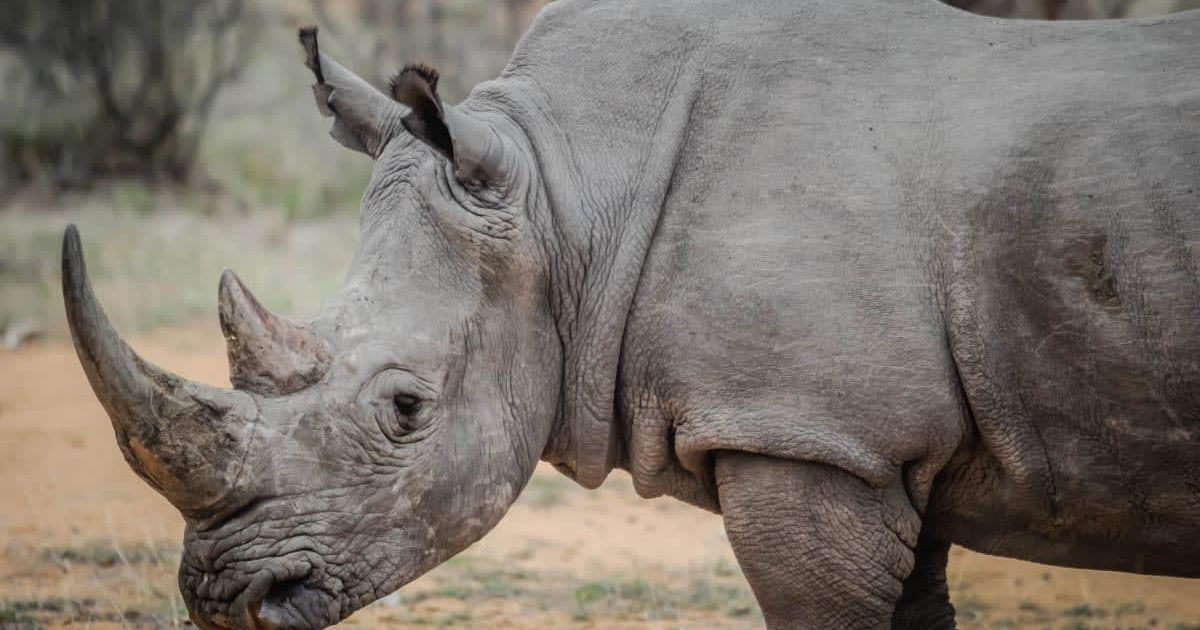The Black Mambas: South Africa’s all-women anti-poaching patrol to the rhino’s rescue

The Greater Kruger National Park in South Africa faces significant challenges in protecting and conserving its rhino population. These rhinos are illegally captured or hunted for their horns, which fetch hefty prices, resulting in a sharp decline in their numbers. According to IFAW, a rhino's horn is believed to have medicinal properties that cure fevers, hangovers, and even cancer. The horn contains keratin, which is thought to help in the treatment of these illnesses. Even though science has refuted these claims, the high demand for rhino horn, particularly in Asian countries, has led to the brutal mutilation of the rhinos. Poachers track the rhinos, use tranquilizers to knock them out, and then mutilate them, which ultimately leads to their death. South Africa has come up with a strong solution to counter these numbers.
View this post on Instagram
Many famous personalities have raised their voices in support of rhino conservation. To quote Mark Carwardine, a British conservationist, "The scary thing is that in my lifetime, 95 per cent of the world's rhinos have been killed." David Attenborough once said, "The only way to save a rhinoceros is to save the environment in which it lives, because there's a mutual dependency between it and millions of other species of both animals and plants." To address the crisis facing rhinos, an all-women anti-poaching squad was formed by Transfrontier Africa in 2013. Young rural women of South Africa are recruited and trained to contribute to the protection of the species.
View this post on Instagram
Masingi and Mzimba are two of the brave women who have been serving the anti-poaching mission. According to the reports from Down To Earth, Masingi previously worked as an assistant English teacher for six months before joining the Black Mambas in 2019. She spent her childhood watching National Geographic and learning about animal behavior from the shows.
View this post on Instagram
Masingi’s father disapproved of her job as a Black Mamba when she started, as she worked unarmed and in unsafe conditions, but her determination paved the way. Mzimba, a 33-year-old nature lover from Hluvukani, was inspired by her younger sister to join the rhino rescue mission. Growing up in a family with no father and a mother who raised four kids, Mzimba pulled through with the support of a social grant. Having to patrol 20 kilometres every day, Masingi and Mzimba are happy to be a part of this noble cause. Speaking about her experience as a Black Mamba, Masingi said, “Women like me act as their eyes and ears because these animals cannot vouch for themselves. It is a mutual relationship, as animals help us too. When we work as a team, all of us feel safe.”
According to Save the Rhino, although crimes against rhinos have decreased by more than 15% compared to 2023, the year 2024 still recorded the killing of 420 rhinos. In Kruger National Park and other strongholds, rhino populations have plummeted, unable to bounce back from a decade of brutal poaching. Since 2013, rhino numbers in Kruger have declined significantly by 59%. According to the International Rhino Foundation, 17 rhinos were poached in Kruger in January 2025. The official website of the Government of South Africa has reported the poaching of 103 rhinos across the country from January to March 2025.
The Black Mambas have been actively working to protect rhinos from poaching, alongside contributing to wildlife conservation for over a decade. They have succeeded in bringing poaching number down, but the rhinos still continue to live under threat.